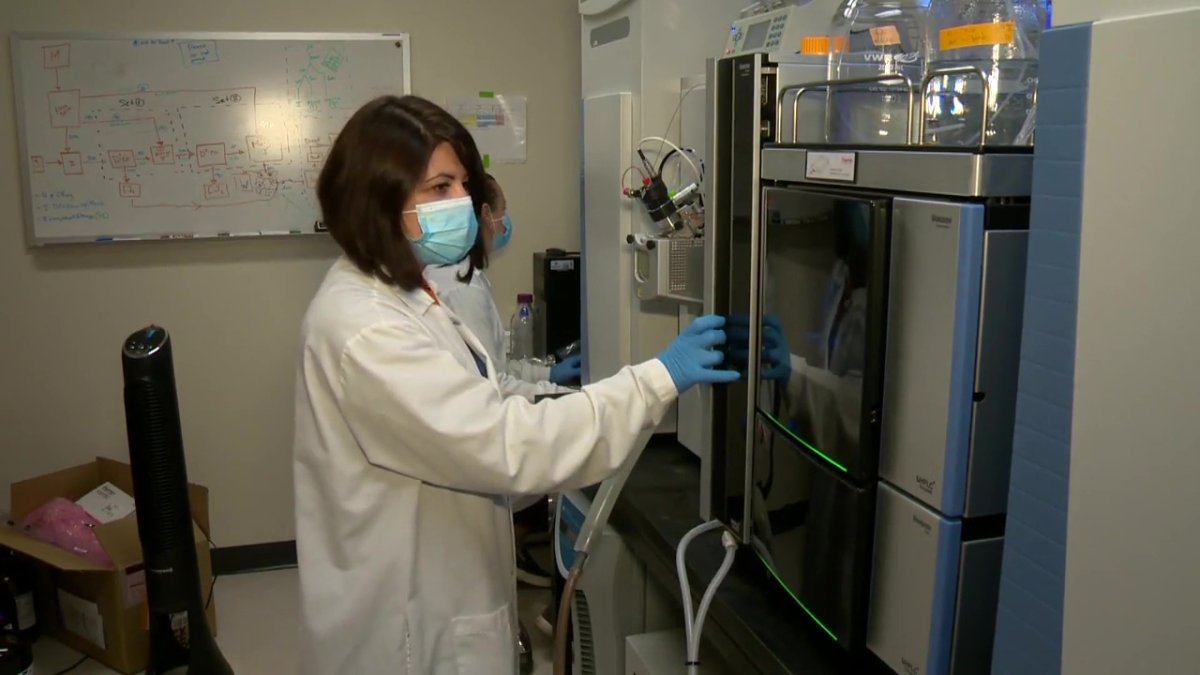Work is underway at the University of Calgary to develop a new way to test for COVID-19, and researchers say this type of test has the potential to ease reliance on current supply chains for test supplies.

Current testing methods involve a throat or nasal swab, which are then analyzed to see if they contain viral RNA.
Dr. Ian Lewis, an associate professor in the Department of Biological Sciences at the University of Calgary, said his lab is developing a test that would look for viral protein components instead, using a different type of technology.
“The current way we detect COVID-19 requires a very specific set of reagents (substances that cause chemical reactions), set of enzymes, set of buffers that are common to almost all the existing and emerging technology,” he said.
Lewis said that dependency can create vulnerabilities if there are supply chain limitations.
“You could potentially really have a problem if you run out of those reagents,” he said.
“Our technique uses a fundamentally different principle. It just measures the proteins that are there directly on the swab. If those proteins include virus proteins, we can detect those. That’s made possible by modern high-resolution mass spectrometry, which is an exquisitely sensitive technology and is the cornerstone of our approach.”
Lewis said this new technique would require reagents, though minimally and ones that are different from those currently being used.
On May 21, Alberta’s chief medical officer of health Dr. Deena Hinshaw acknowledged the competition for crucial testing supplies.

Get weekly health news
“There is a global demand for things like swabs and reagent and so it is sometimes challenging to get the volume of supplies that we need, and so that can sometimes constrain our ability to do daily testing,” she said.
In August, the province started a pilot project to pool COVID-19 samples during testing; Nathan Zelyas, medical microbiologist at Alberta Precision Laboratories, said one advantage of the method was conserving the supplies and reagents needed to test.
In September, B.C. introduced a spit-and-gargle COVID-19 test for children; Dr. David Goldfarb, a medical microbiologist with the B.C. Children’s and Women’s Hospital said that test was developed as a swab-free way to collect samples due to challenges in acquiring swabs.
Lewis said current testing methods are very sensitive and acknowledges that a protein-based test may not be as effective.
However, he said one challenge with current tests is the ability to scale up.
“The advantage of going to this other technology… is it provides you a different modality for testing so it gets you out of dependency on the same kind of supply chains that we have for the traditional testing and then bandwidth, it can be scaled up to a very large scale.”

Virologist Marija Drikic, who also works in the lab, said one goal of the research is to increase turn-around times for results.
“Right now, our current test… takes the same amount of time as the official test. What we are hoping for is we’ll be able to process much more samples simultaneously, therefore increasing the workflow and load of tests we can do in one day,” she said.
Parts of Europe, along with Ontario and Quebec, are already in the midst of a second wave of the pandemic. Drikic said a different way to test for COVID-19 is critical at this moment in time.
“Our only way of controlling this pandemic will be testing and isolating people that are infected in a timely manner. Having the ability to test fast is crucial,” she said.
Lewis said researchers should know by December whether the protein-based test shows promise.
The research received $200,000 from Genome Alberta and has additional support from Alberta Innovates and Scotiabank.


Comments